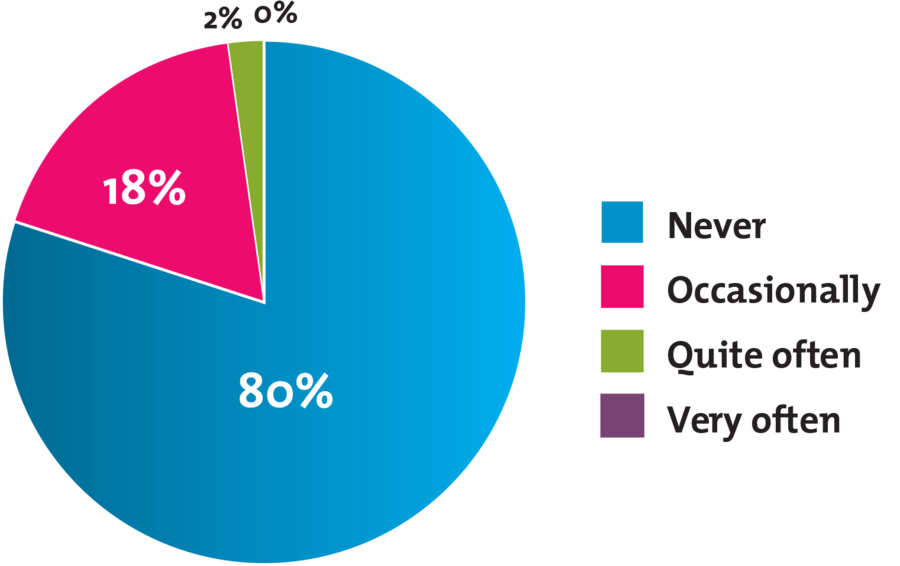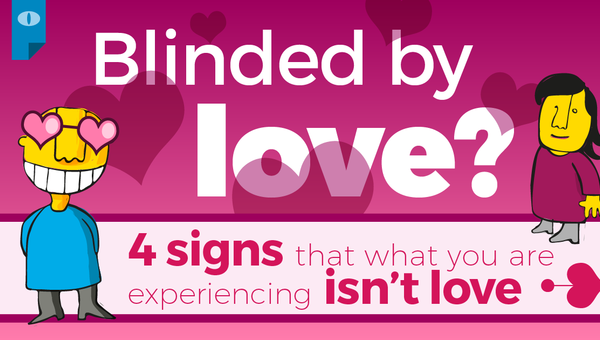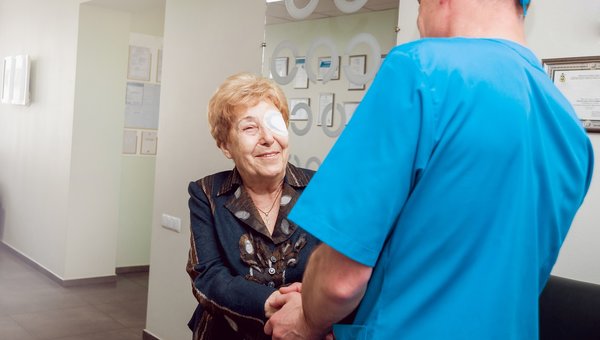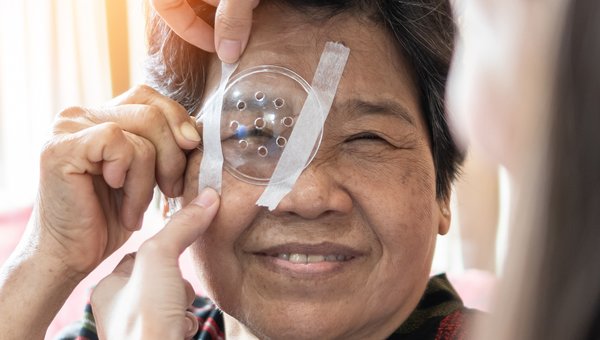Glasses
You will need glasses for most viewing distances after your cataract surgery.
A cataract is a clouding of the eye's natural lens, causing vision loss. A cataract can occur in either or both eyes. If left untreated, the clouding can eventually lead to legal blindness or even total blindness.
Most cataracts are related to aging, but cataracts can also be present at birth or develop later in life caused by physical injury or trauma.
The lens lies behind the iris and the pupil. In a normal eye, light passes through the transparent lens. The lens is made of mostly water and protein. As we age, some of the protein may clump together and start to cloud a small area of the lens. This is a cataract. Over time, the cataract may grow larger and cloud more of the lens, making it harder to see.
Presbyopia is caused by a hardening of the lens of your eye, which occurs with aging. As your lens becomes less flexible, it can no longer change shape to focus on close-up images, making it difficult to see at intermediate and near distances (30cm – 100 cm). Most people begin to notice the effects of presbyopia sometime after age 40 and start using reading glasses and computer glasses. Whether you will need glasses after surgery depends on the type of artificial lens that is implanted.
You can choose from different types of artificial lenses.
Premium lenses
Lenses with specialized optics. You will be less dependent on glasses after cataract surgery.
Standard lenses
Lenses with standard optics. They only offer clear vision at one distance, either near of far. This means you will be
dependent on glasses.
During cataract surgery the natural lens of your eye affected by cataract will be removed.
After removal, during the same surgery, an artificial lens will be implanted into your eye.
This lens takes over the functions of your natural lens and you will see better again. Whether you will need glasses after surgery depends on the type of artificial lens that is implanted.
You will need glasses for most viewing distances after your cataract surgery.
After your cataract surgery you will be able to see at different distances without glasses.

You will need glasses for most viewing distances.
 Precizon Presbyopic
Precizon Presbyopic You will be able to see at different distances without glasses.
“I was forever putting my glasses on and off during meetings and presentations at work. That has come to an end thanks to my Natural Vision”
Results of a Precizon Presbyopic Multi Center Study 2017

 by OPHTEC on 12 February 2021
by OPHTEC on 12 February 2021
 An interview with Erwin Bouwman, Manager Clinical Research at OPHTEC, 12 November 2020
An interview with Erwin Bouwman, Manager Clinical Research at OPHTEC, 12 November 2020
Erwin Bouwman is manager of the Clinical Research department at Ophtec and conducts research into clinical products. Erwin regularly receives questions about the consequences of cataract surgery, such as dry eyes or glaucoma. Below, he answers a number of frequently asked questions.
 An interview with Cecilia Lollinga en Anja Boen, OK-assistenten at OMC HanzeKliniek in The Netherlands, 16 February 2020
An interview with Cecilia Lollinga en Anja Boen, OK-assistenten at OMC HanzeKliniek in The Netherlands, 16 February 2020
“People often tell us they think it’s ‘a piece of cake’. But it is a real surgical procedure that needs to be prepared and completed properly. We recently had a patient in the operating theatre who was accompanied by his daughter. She knew him well: ‘Tell my father he’s not allowed to clean the barn tomorrow.’We, of course, gave him instructions on what to do and what not to do.”
 An interview with Hendrik Boerman, productspecialist at OPHTEC, 22 December 2019
An interview with Hendrik Boerman, productspecialist at OPHTEC, 22 December 2019
“Patients often tell me they wished they’d had it sooner. After all, cataract surgery improves their lives in many ways and patients don’t have to undergo surgery for it ever again."
 An interview with Erik de Haas, Development Leader at OPHTEC, 5 October 2019
An interview with Erik de Haas, Development Leader at OPHTEC, 5 October 2019
Development Leader Erik de Haas is often asked about reading glasses, lenses and lens surgery. Not surprising, given his role at Ophtec: “I am responsible for the development of new products within Ophtec, from idea to market introduction, and after that for the entire lifecycle. I’ve been doing this job since 2012, but have worked for Ophtec for 19 years now.” Below, Erik gives answers to frequently asked questions.
The best way to determine if you are a good candidate for the Precizon Presbyopic lens is to schedule a consultation with your eye surgeon. Do you have questions or would you like to receive more information? Contact your eye surgeon or fill out the form on this website.